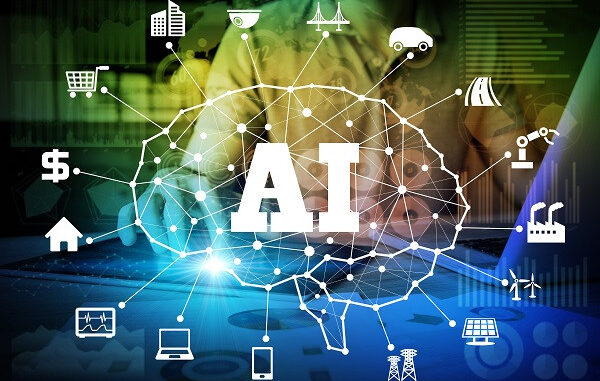
AI offers immense potential to transform both business operations and e-commerce experiences. By leveraging AI technologies, companies can optimize processes, enhance customer satisfaction, and gain a competitive edge in the market.
However, the successful implementation of AI also requires careful consideration of ethical and operational challenges. As the technology continues to evolve, businesses must adapt and innovate to stay ahead.









Artificial intelligence (AI) is making profound changes in the business and e-commerce sectors, revolutionizing how companies operate, interact with customers, and make decisions. Here’s a detailed overview of how AI is applied in these fields:
### Applications of AI in Business
1. **Customer Service:**
– **Chatbots and Virtual Assistants:** AI-powered chatbots provide 24/7 customer support, handling inquiries, offering product recommendations, and addressing issues, improving customer satisfaction while reducing operational costs.
– **Sentiment Analysis:** AI can analyze customer feedback, reviews, and social media interactions to gauge sentiment towards products or services, helping businesses adjust their strategies accordingly.
2. **Marketing and Sales:**
– **Targeted Advertising:** AI uses data analytics to segment customers and deliver personalized advertisements, ensuring that marketing messages reach the right audience at the right time.
– **Predictive Analytics:** Businesses leverage AI to forecast sales trends and customer behavior, enabling them to make informed decisions about inventory, promotions, and production.
3. **Data Analysis and Insights:**
– **Business Intelligence:** AI tools analyze large datasets to uncover actionable insights, helping organizations make data-driven decisions. This includes performance metrics, customer trends, and market research.
– **Natural Language Processing (NLP):** NLP helps extract relevant information from unstructured data sources, such as emails, reports, and customer feedback.
4. **Supply Chain Management:**
– **Demand Forecasting:** AI algorithms analyze historical data to predict future demand, enabling businesses to optimize inventory management and reduce waste.
– **Logistics Optimization:** AI improves route planning and logistics, ensuring effective delivery schedules and reducing costs.
5. **Human Resources:**
– **Recruitment:** AI-powered tools can sift through resumes to identify the best candidates based on predefined criteria, streamlining the hiring process.
– **Employee Engagement:** AI can help analyze employee feedback and engagement levels, providing insights to improve workplace culture and retention.
6. **Fraud Detection and Risk Management:**
– **Anomaly Detection:** AI algorithms monitor transactions in real-time to identify unusual patterns that suggest fraudulent activity, helping to mitigate financial risk.
– **Credit Scoring:** AI systems can assess a wider range of data to evaluate creditworthiness, enhancing risk management processes.
### Applications of AI in E-commerce
1. **Personalized Shopping Experiences:**
– **Recommendation Engines:** E-commerce platforms like Amazon and Netflix utilize AI to provide personalized product recommendations based on user behavior and preferences, boosting sales and customer engagement.
– **Dynamic Pricing:** AI analyzes market conditions, competitor pricing, and consumer behavior to optimize pricing strategies in real-time, maximizing both revenue and sales volume.
2. **Inventory Management:**
– **Automated Stock Management:** AI systems predict inventory needs based on trends, seasonality, and demand fluctuations, helping businesses optimize stock levels and minimize costs.
– **Product Categorization:** AI can automatically categorize products and optimize listings, enhancing searchability and improving user experience.
3. **Visual Search and Augmented Reality (AR):**
– **Visual Search:** Users can upload images to find similar products, improving the shopping experience and making it easier for customers to discover items.
– **AR Integration:** AI-powered AR tools allow customers to visualize products in real-life settings before making a purchase (e.g., home decor, furniture), enhancing customer confidence and reducing return rates.
4. **Customer Insights and Retargeting:**
– **Behavioral Analytics:** AI examines customer interactions to generate insights about buying patterns, allowing businesses to tailor marketing campaigns for better engagement.
– **Retargeting:** AI can identify potential customers who have abandoned their carts and deliver personalized ads or emails to encourage completion of the purchase.
5. **Payments and Checkout:**
– **Fraud Prevention:** AI analyzes transaction patterns in real-time to detect and prevent fraudulent purchases during the checkout process.
– **Streamlined Payments:** AI can facilitate smoother transactions by utilizing biometric authentication, digital wallets, and smart fraud detection algorithms.
6. **Customer Journey Optimization:**
– **User Behavior Tracking:** AI analyzes the interactions of customers on e-commerce platforms to identify friction points, improving user journey and conversion rates.
– **A/B Testing:** AI can automate and optimize A/B testing for website layouts, product displays, and marketing strategies, allowing businesses to identify effective designs quickly.
### Challenges and Considerations
1. **Data Privacy and Ethics:**
– As businesses and e-commerce entities collect vast amounts of customer data, ensuring data privacy and compliance with regulations (like GDPR) becomes paramount.
2. **Implementation Costs:**
– Integrating AI into existing systems may require significant upfront investment in technology and training.
3. **Bias in AI Systems:**
– AI systems can inadvertently perpetuate biases if they’re trained on incomplete or biased datasets, leading to unfair treatment of certain customer segments.
4. **Technological Dependence:**
– Over-reliance on AI systems may lead to vulnerabilities if these systems fail or make incorrect decisions during critical operations.


Leave a Reply